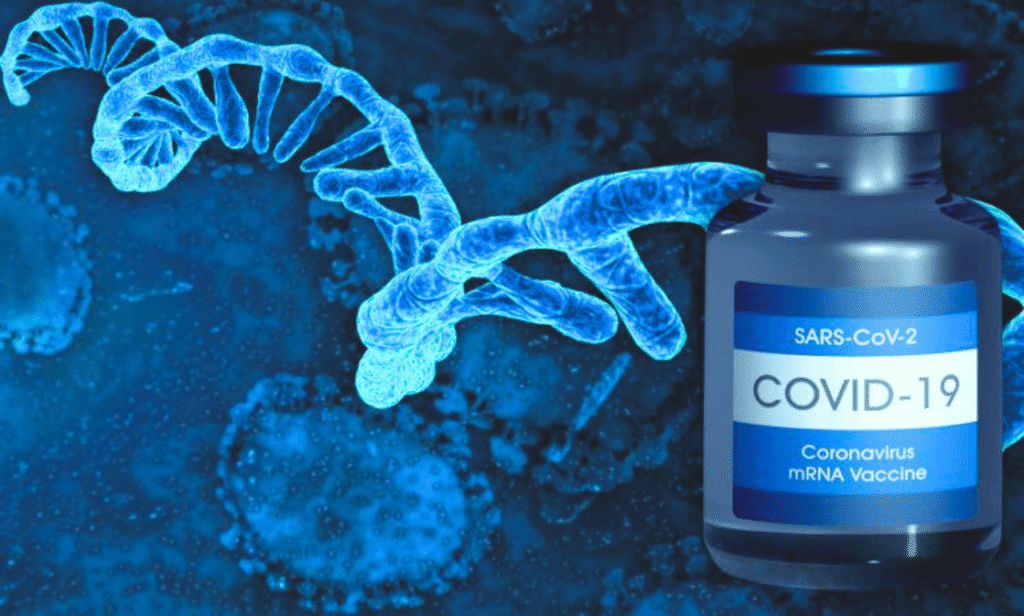
A surprising and potentially significant connection has emerged from cancer research, suggesting that the most common COVID-19 vaccines might offer a crucial secondary benefit for certain patients battling advanced cancer. Preliminary findings indicate that individuals with serious forms of lung or skin cancer who received an mRNA vaccine from Pfizer or Moderna around the time they started a specific cancer treatment lived notably longer than their unvaccinated counterparts. This research, highlighted in a report in the prestigious journal Nature, points to a effect that is separate from the vaccine’s intended purpose of preventing coronavirus infection. Instead, the molecule central to these vaccines appears to be acting as a general stimulant for the immune system, potentially making it more receptive to cutting-edge cancer drugs.
The investigation was conducted by a collaborative team from the University of Florida and the MD Anderson Cancer Center in Houston. Their focus was on a powerful class of cancer treatments known as checkpoint inhibitors. The human immune system is naturally equipped to seek out and destroy cancerous cells, but some aggressive tumors develop the ability to hide from this surveillance. Checkpoint inhibitor drugs work by essentially removing this biological disguise, allowing the patient’s own immune cells to see and attack the tumor. However, this treatment is not universally effective; in some individuals, the immune system remains unresponsive even after the tumor’s “cloak” is removed. The new research hints that an mRNA vaccine might be the key to awakening that sluggish immune response.
Dr. Adam Grippin, the lead researcher from MD Anderson, described the vaccine’s role using a compelling analogy. He suggested that the mRNA shot “acts like a siren to activate immune cells throughout the body.” This widespread activation seems to prime the immune system, making it more alert and ready to respond. Dr. Grippin summarized the effect as “sensitizing immune-resistant tumors to immune therapy,” a breakthrough that could change the outlook for patients for whom this type of treatment had previously shown limited promise. The study’s results were so encouraging that the research team is already planning a more rigorous, controlled clinical trial to definitively test whether pairing mRNA coronavirus vaccines with checkpoint inhibitors should become a standard part of care. While they work on developing entirely new mRNA vaccines specifically designed to target cancer, this interim approach using existing, widely available shots could offer a rapid and accessible benefit.
To arrive at these findings, the team delved into the medical records of nearly 1,000 patients being treated for advanced lung cancer or melanoma at MD Anderson. They carefully compared the outcomes of patients who, for their own health protection, had received a Pfizer or Moderna COVID-19 vaccine within a 100-day window of starting their checkpoint inhibitor treatment against those who had not been vaccinated. The difference in survival was striking. For vaccinated lung cancer patients, the likelihood of being alive three years after beginning cancer treatment was nearly double that of the unvaccinated group. The data for melanoma patients was equally promising, showing a significantly longer median survival time for those who had the vaccine, with the analysis noting that some patients in the vaccinated group were still alive at the time of the study, making a final survival calculation impossible.
To ensure the effect was unique to mRNA technology, the researchers also checked whether other common vaccines, such as the standard flu shot, had any impact. They found that non-mRNA vaccines made no statistical difference in patient survival, strongly suggesting that the messenger RNA molecule itself is the active component driving this unexpected benefit. Messenger RNA, or mRNA, is a fundamental biological molecule present in every cell of our bodies. It carries genetic instructions that tell our cellular machinery which proteins to produce. The COVID-19 vaccines use synthetic mRNA to instruct muscle cells to make a harmless piece of the virus spike protein, which then triggers an immune response. For years, scientists have been working to harness this same mechanism to create personalized cancer “treatment vaccines” that would train the immune system to recognize and attack unique proteins found on a patient’s own tumor cells.
This new research provides a fascinating clue that a more general, “off-the-shelf” mRNA vaccine might be sufficient to provide a broad boost to the immune system, at least in the context of immunotherapy. Dr. Jeff Coller, an mRNA specialist at Johns Hopkins University who was not involved in the study, commented on the broader implications. He called the findings a “very good clue” and noted that “what it shows is that mRNA medicines are continuing to surprise us in how beneficial they can be to human health.” The discovery itself came about somewhat serendipitously. Dr. Grippin and his colleagues in Florida had been deeply involved in developing those highly personalized mRNA cancer vaccines. During their work, they observed that even an mRNA vaccine created without a specific cancer target seemed to stimulate a similar kind of anti-cancer immune activity. This observation sparked the question of whether the existing mRNA COVID-19 shots, already administered to billions worldwide, might be having a similar, unintended anti-cancer effect.
This line of inquiry opens up a new and exciting frontier in oncology and immunology. The potential to repurpose existing, well-studied, and safe mRNA vaccines to enhance the efficacy of life-saving cancer treatments represents a significant shift in our understanding of these technologies. While the research is still in its early stages and requires validation through larger, prospective studies, the initial data provides a strong foundation for optimism. It suggests that the legacy of mRNA vaccine technology could extend far beyond the pandemic, offering a new tool in the ongoing fight against cancer by leveraging the body’s own powerful and complex immune defenses in a more generalized and potent way. The continued investigation into this phenomenon will be closely watched by the medical community, as it promises to deepen our understanding of the intricate relationship between infectious disease immunity and cancer surveillance.
